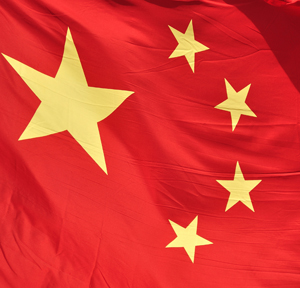Emerging Markets
MSCI Says China's Mainland Equity Market Not - Yet - Ready For Prime Time

The influential index business, which produces indices tracked by scores of investment firms and used as reference points for fund and wealth managers, is not yet including Chinese mainland equities in a flagship emerging markets benchmark.
China’s hopes of taking another step towards become fully integrated into the global investment system were delayed yesterday after index provider MSCI pushed back including mainland A shares into its flagship benchmark of emerging market equities. By contrast, MSCI said shares of Pakistan will be included in the index, sending equities of that country upwards.
MSCI, aka Morgan Stanley Capital International, decided to delay inclusion of China A shares in the MSCI Emerging Markets Index because, among other factors, state restrictions on share transactions were a hurdle. More broadly, MSCI made encouraging noises about the Asian giant’s progress.
The move will be disappointing to China but, as wealth managers said in their reactions, not entirely unexpected; it followed a period last year and into the start of 2016 that was marked by market turmoil. Fears of deceleration to Chinese growth, and pressures on its financial system, have weighed on global sentiment.
“The decision by MSCI to delay the inclusion of Chinese A shares into their benchmarks is, naturally, mildly disappointing for us and for other investors in the Chinese stock market,” Anthony Cragg, senior portfolio manager at Wells Fargo China Equity Fund, said.
Winnie Chiu, senior portfolio manager, Indosuez Wealth Management, said: “The non-inclusion of A-shares in the MSCI emerging markets index may result in a short-term negative psychological impact. However, this should not affect institutional investors’ opinions towards individual mainland companies. Their confidence towards A-shares should stem from progress made in business development, earnings growth prospects, corporate governance, and from the fact that more companies are accessible to external shareholders.
“Overseas investors have so far been underweighting the China market. The non-inclusion should not cause a major liquidity outflow at least for this current juncture,” Chiu added.
Inclusion into the MSCI Emerging Markets Index would mean large institutional investors, such as pension funds, life insurers and retail asset managers, could own such shares, increasing their liquidity. Such investors understandably seek convenient exposure to the world’s second-largest economy, even though its equity market, relatively speaking, is small (compared to that of the US, for example).
“Over recent months, Chinese authorities have introduced significant improvements in the accessibility of the China A shares market for global investors. In our 2016 consultation, investors recognised the actions taken to further open the China A shares market and highlighted that the topic of beneficial ownership has been satisfactorily addressed,” MSCI said in a statement yesterday.
MSCI said it needed time, for example, to monitor whether state controls on trading were effective. It added that a 20 per cent monthly repatriation cap “is a significant hurdle for investors, and local exchanges’ pre-approval restrictions on launching financial products remain unaddressed”.
“As a result of these concerns, MSCI will retain the China A shares inclusion proposal as part of our 2017 Market Classification Review. We don’t rule out a potential off-cycle announcement should further significant positive developments occur ahead of June 2017," MSCI added.
Inclusion of mainland shares into the index is a matter of timing, UBS said in a note.
“We expect A-share sentiment to be hurt in the short term. But we only see less than 5 per cent downside risk at this level, since A-shares have already corrected in past few days. We also believe the event has limited impact on offshore Chinese equities, and continue to prefer new economy (over old economy) for offshore Chinese equities,” Louisa Fok, equity analyst, UBS CIO Wealth Management, said.
“We believe the inclusion of A-shares in the MSCI universe is a
matter of when and not if given the size of China at both the
macro and the market levels. With China's continued
liberalisation of its capital market, global investors will gain
confidence and add to their positions in A-shares,” Fok
added.
Pakistan promoted
Separately, MSCI elevated Pakistan to emerging market status from
its previous frontier market ranking, sending up shares in the
country to a record level.
"Pakistan typifies the classic investment case of a frontier
country transitioning to emerging market status, and is a good
example of where perception and reality differ. The combination
of increased peace and better politics leads to improved economic
management and attracts investment, in Pakistan’s case $46
billion from China for infrastructure, resulting in higher
growth," according to a note from T Rowe Price, the investment
house.
"While Pakistan’s weight is likely to be just 20 basis points in
the MSCI EM index – in-line with Czech Republic and Egypt –
further government privatisations and stake sales, especially in
state oil companies Oil and Gas Development Company and Pakistan
State Oil, should increase the free-float and result in higher
index weights over time," it added.
The investment firm said banks are the largest weight in MSCI
Pakistan Index and are among the most liquid stocks in the local
market.
"Pakistan’s structural medium-term story is attractive, with one
of the lowest credit and deposit penetrations and loan-to-deposit
ratios in the Asian and EM universes. Earnings in the bank sector
are likely to be flat or slightly down in 2016 on net interest
margin compression – due to aggressive rate cuts last year on a
sharp drop in inflation. However, with rate cuts bottoming out
and credit growth accelerating, earnings growth should be back in
double-digits with ROE expansion in 2017 and beyond," it added.